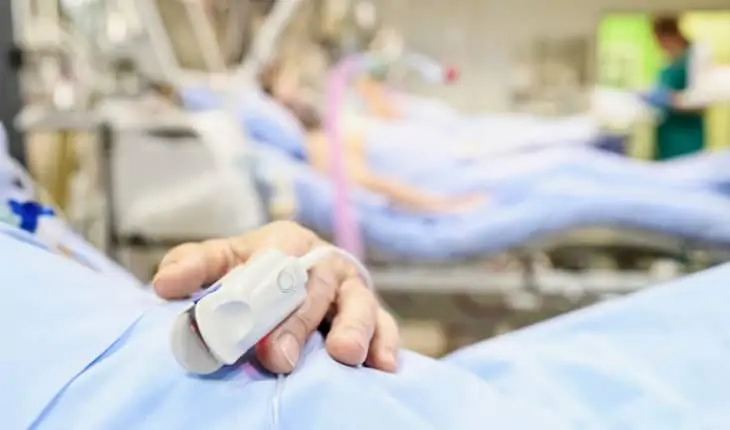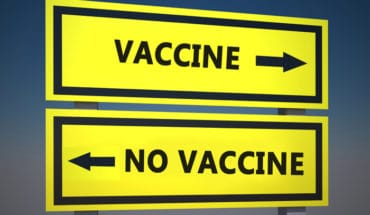Arthritis drugs may help sickest Covid-19 patients: Treating critically ill COVID-19 patients with drugs typically used for arthritis may significantly improve survival, a landmark study has found.
The findings, which have not yet been peer-reviewed, come from the REMAP-CAP trial, which evaluates the effect of treatments on a combination of survival and length of time patients need support in an intensive care unit (ICU).
Initial findings reported in November showed that tocilizumab, a drug used to treat arthritis, was likely to improve outcomes among critically ill COVID-19 patients. But the impact on patient survival and length of time on organ support in ICU was not clear at that time.
Now, the latest analysis shows that tocilizumab and a second drug called sarilumab – both types of immune modulators called IL-6 receptor antagonists – have a significant impact on patient survival, reducing mortality by 8.5%.
Furthermore, the treatment also improved recovery so that on average patients were able to be discharged from the intensive care unit (ICU) about a week earlier.
The latest analysis will be published in a pre-print available on medRxiv, with the findings submitted to a peer-reviewed journal.
“This is a significant finding which could have immediate implications for the sickest patients with COVID-19,” said Professor Anthony Gordon, Chair in Anaesthesia and Critical Care at Imperial College London and a
Consultant in Intensive Care Medicine at Imperial College Healthcare NHS Trust.
“We found that among critically ill adult patients – those receiving breathing support in intensive care – treatment with these drugs can improve their chances of survival and recovery,” explained Professor Gordon. “At a time when hospitalisations and deaths from COVID-19 are soaring in the UK, it’s crucial we continue to identify effective
treatments which can help to turn the tide against this disease.”
At the end of last year, positive early findings on tocilizumab were released before the full data had been collected. With the full analysis now available, researchers are confident the findings could have immediate clinical implications for patients.
Tocilizumab and sarilumab are immunosuppressive drugs used to treat rheumatoid arthritis. They were two of several immune modulation treatments included in the REMAP-CAP trial.
Patients receiving tocilizumab and sarilumab were more likely to improve (measured by a combination of reduced time on organ support, such as a ventilator, in the ICU and surviving the hospital admission) compared to patients who received no immune modulator.
Full findings
At the time of full analysis 353 patients had been assigned to tocilizumab, 48 to sarilumab and 402 to control. The majority of patients were also treated with corticosteroids and were receiving respiratory support.
The trial data yielded an odds ratio of 1.64 for a better outcome with tocilizumab, and 1.76 for sarilumab, compared to no immune modulation, with a high degree of statistical certainty (>99.5% probability that both treatments are superior to no immune modulation).
Hospital mortality was reported as 27.3% among patients receiving IL-6 receptor antagonists (28.0% for tocilizumab, 22.2% for sarilumab) compared with 35.8% for control group.
Professor Gordon added: “Previous trials using IL-6 receptor antagonists have showed no clear benefit on either disease progression or survival in COVID-19 patients, but those studies included less severely ill patients and started treatment at different stages in the disease course.
“A crucial difference may be that in our study, critically ill patients were enrolled within 24 hours of starting organ support. This highlights a potential early window for treatment where the sickest patients may gain the most benefit from immune modulation treatment.”
The REMAP-CAP study is led by Imperial College London and the Intensive Care National Audit & Research Centre (ICNARC) in the UK and University Medical Center Utrecht in Europe. It began investigating treatments for
COVID-19 in March 2020, enrolling hospitalised patients with either moderate or severe (requiring ICU care) COVID-19 disease.
The study design randomises patients to multiple combinations of treatments, enabling researchers to evaluate different treatments for COVID-19, including antivirals, drugs which modulate the immune response, and therapies that modulate or support other vital aspects of the body’s response to the virus.
In total, over 3,900 patients in 15 countries have been enrolled at more than 290 hospitals worldwide and randomised to multiple treatment combinations. The effects of interventions are assessed separately for moderate and severely ill patients.
The latest findings on tocilizumab and sarilumab add to REMAP-CAP findings from earlier this year, which found that hydrocortisone steroid treatment improved recovery among critically ill COVID-19 patients.
This study is one of a number of COVID-19 studies that have been given urgent public health research status by the Department of Health and Social Care. As of November 2020 75% of all study participants had been recruited in the UK through the NIHR’s Clinical Research Network (CRN).
The study is supported in the UK by the National Institute for Health Research (NIHR) and Imperial College London & ICNARC are partners in the EU funded PREPARE consortium.
- New lipid-based pathway discovered as key to memory formation - 25th June 2025
- Crucial link could explain how Alzheimer’s takes hold - 25th June 2025
- Understanding Your Mind Can Improve Daily Life - 25th June 2025






